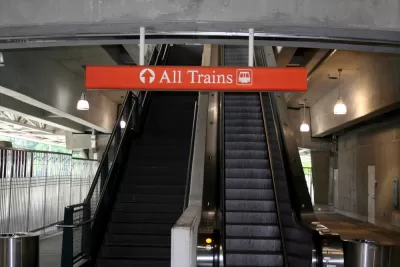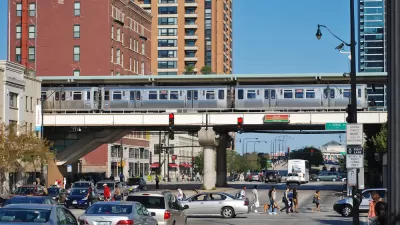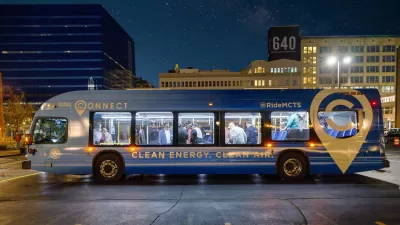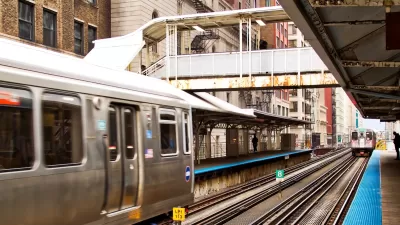The carrot at the end of a possible re-organization of the state of Georgia's regional transportation agencies would come in the shape of state funding for transit.

A series of articles by David Wickert explains the growing political support for an overhaul of management and funding of mass transit operators in the state of Georgia.
In an article from early December, Wickerts reports that committees in the both houses of the Georgia State Legislature "are studying whether to consolidate local and regional transit agencies," with the idea that such structural changes could reveal efficiencies.
The second article explicitly states the incentive for the state's transit agencies to go along with the idea: "the prospect that the consolidation effort could produce long-sought state funding of mass transit operations in Georgia."
Georgia infamously provides almost no state funding to transit agencies. "This year the state provided $75 million for mass transit capital projects (like buses and transit stations)," explains Wickerts in the first article. "But with the exception of subsidies for GRTA commuter bus service, Georgia remains one of the few states that provides no regular funding for mass transit."
The second article also reports that the Senate Study Committee on Regional Transit Solutions released a final list of recommendations that calls for "'an all-inclusive solution in the area of transit governance and funding' that could be enacted by the General Assembly in 2018."
Astute observers of Georgia transportation politics will recall that the current efforts are only the most recent effort "to get the fractious Atlanta region to pull in one direction when it comes to fixing its traffic problems." Previous efforts, according to Wickert, have not resolved any of the state's regional transportation challenges, "like the failed regional TSPLOST campaign in 2012."
FULL STORY: 2-hour commute from Snellville? Can’t we do better than that?

Maui's Vacation Rental Debate Turns Ugly
Verbal attacks, misinformation campaigns and fistfights plague a high-stakes debate to convert thousands of vacation rentals into long-term housing.

Planetizen Federal Action Tracker
A weekly monitor of how Trump’s orders and actions are impacting planners and planning in America.

In Urban Planning, AI Prompting Could be the New Design Thinking
Creativity has long been key to great urban design. What if we see AI as our new creative partner?

King County Supportive Housing Program Offers Hope for Unhoused Residents
The county is taking a ‘Housing First’ approach that prioritizes getting people into housing, then offering wraparound supportive services.

Researchers Use AI to Get Clearer Picture of US Housing
Analysts are using artificial intelligence to supercharge their research by allowing them to comb through data faster. Though these AI tools can be error prone, they save time and housing researchers are optimistic about the future.

Making Shared Micromobility More Inclusive
Cities and shared mobility system operators can do more to include people with disabilities in planning and operations, per a new report.
Urban Design for Planners 1: Software Tools
This six-course series explores essential urban design concepts using open source software and equips planners with the tools they need to participate fully in the urban design process.
Planning for Universal Design
Learn the tools for implementing Universal Design in planning regulations.
planning NEXT
Appalachian Highlands Housing Partners
Mpact (founded as Rail~Volution)
City of Camden Redevelopment Agency
City of Astoria
City of Portland
City of Laramie





























